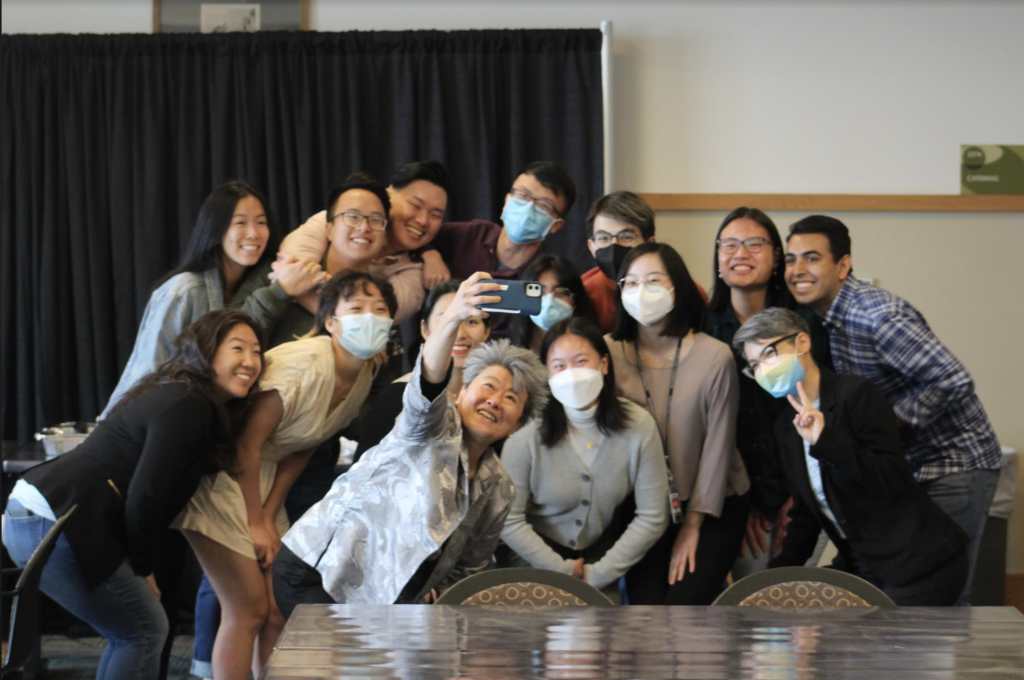
Jack Mok grew up around a lot of Asian Americans back home. Still, he was no stranger to stereotypes — like when kids would poke fun at things made in China.
“I laughed along with the jokes, I even told a couple when I was growing up. I never really understood the sort of the stigma that was associated with that,” says Mok, a recent Vanderbilt University graduate who’s also Taiwanese-American.
Earlier this school year, Mok took one of the few classes Vanderbilt University offered on Asian American history. That’s where he learned how Chinese goods got a bad reputation. It partly had to do with China’s complicated relationship with the United States.
The course helped debunk Mok’s own misconceptions, and he hopes the same could be true for other students.
“The reasoning that we came up with Asian American studies at our campus was that acts of violence are born out of ignorance,” Mok says.
For the past two years, Mok and other students have been pushing for more Asian American faculty, classes and, eventually, a major.
Vanderbilt offers African American studies and Latino studies, but when it comes to classes on the Asian American experience, the university has fallen short, students say. And it’s part of a larger problem of Asian American students sometimes not feeling accepted, valued and safe despite being one of the fastest growing groups on campus.
The university’s Asian American freshman size nearly tripled in the past ten years. Right now, students who identify as Asian make up nearly a fifth of the total population, meaning they’re largest group behind white students.
Part of the demand has to do with the lack of Asian American history traditionally taught in K-12 education.
When Iris Kim came to Vanderbilt five years ago, she looked forward to the opportunity to learn more about her identity and community. Instead, she saw that the bulk of responsibility was on students to educate one another on stereotypes like the model minority myth, which paints Asian Americans as high achieving and problem free. The term has been historically used to undercut their experiences of racism.
“It’s just extremely tiring,” says Kim, who graduated last year. “That’s not our job. We’re here as students, you know?”
That work became harder to manage during the pandemic as anti-Asian rhetoric popped up on the news and on campus. Kim says, students looked to her and the club, the Asian American Student Association, to help make sense of it all.
That gave her the idea to ask for an Asian American Studies program in the fall of 2020. Her petition received over 1,000 signatures. Months later, the university agreed and started developing a major and a minor.
“The bigger idea of all of this is that we can have more collective mindset of what it means to be Asian American and have this Asian American identity on campus,” Kim says.
Ben Tran is one of the professors helping make that possible. This past semester, he taught a course exploring the relationship between Asian and African Americans — the goal being that his classes aren’t only filled with Asian American students.
“All students should be taking these classes to fully understand the complexities of our history and the fuller picture of how all these things have developed,” Tran says.
So far, the university has hired three faculty members to advance Asian American studies. Right now, the school offers seven Asian American-related courses, touching upon a range of topics from the Cold War to social movements to environmental inequality.
“This will be a continued area of investment through an interdisciplinary effort,” says Julia Jordan, a Vanderbilt spokesperson.
She adds that it’ll take several years until students can get a degree in Asian American studies. But the university is working hand in hand with students to shape the program.
Rohit Kataria, a rising junior and co-director of the Asian American Advocacy Project, is one of the students involved.
Having grown up in a majority white town in Ohio, Kataria was excited to come to Vanderbilt’s campus. While he was able to forge a close-knit Asian American community, Kataria says still the university has a long way to go.
“About 50 percent of my professors that I’ve had over the last two years have mispronounced my name even after multiples of correcting them. And that’s just really disheartening,” he says. “They were taught to pronounce last names like ‘Tarkovsky” and they learned how to, because it was important to them.”
Through Asian American related courses, Kataria hopes students and faculty will have opportunities to learn names from different countries. It might be a small difference, but he says it’ll go a long way in making the campus more inclusive.
For Angela Yan, who also leads the Asian American Advocacy Project, the program is one way to educate students on the full range of Asian American experiences and that the community isn’t a monolith.
“Having this Asian American major and minor is super important to be able to shed light on the issues that the Asian American community faces, as well as shed light on all the celebrations we have,” Yan says.
Mok graduated earlier this month. Looking back at the strides made for Vanderbilt’s Asian American community, Mok says it’s bittersweet. For a long time, he struggled to fit in.
“What I hope for Asian Americans in a decade is that they feel like they belong from the moment they step on campus,” Mok says.
For that to become true, he says that’ll take group effort from the administration, faculty and both Asian and non-Asian American students. After all, these courses are for everyone to enjoy.

